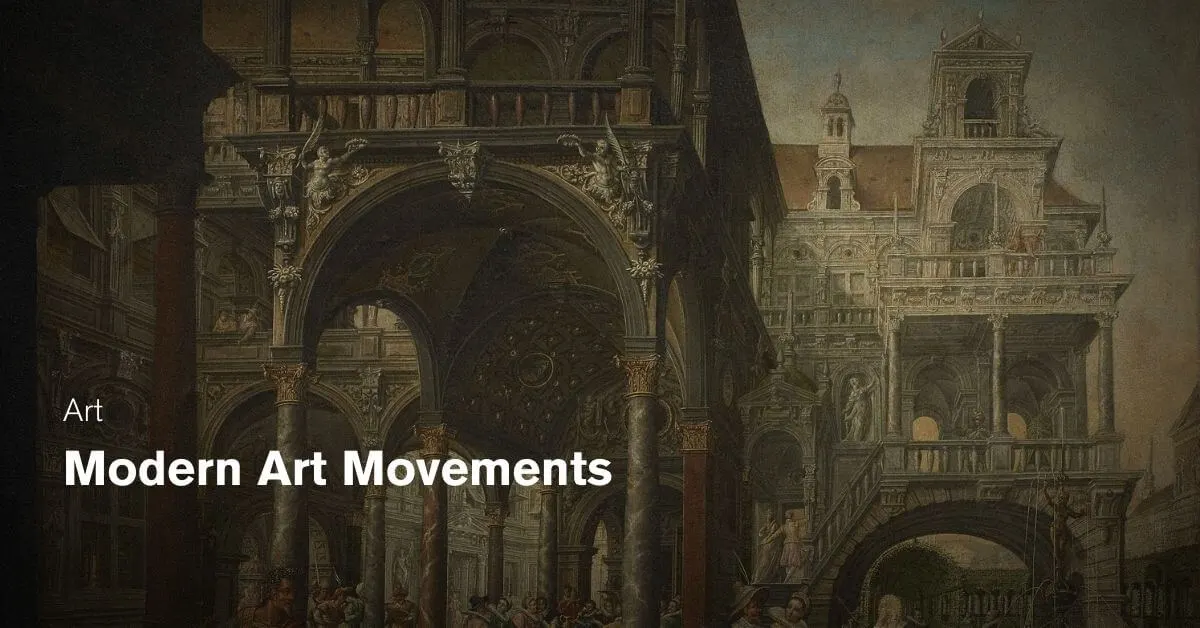As we progress through 2025, the art world continues to evolve at an unprecedented pace. Modern art movements are increasingly blending traditional techniques with cutting-edge technology, creating entirely new forms of artistic expression. Let’s explore the most influential movements shaping today’s creative landscape.
Digital Renaissance
The fusion of classical art techniques with digital tools has created a new aesthetic language. Artists are using AI-assisted tools while maintaining human creativity at the core of their work. This modern art movement emphasizes:
- AI-human collaborative pieces
- Virtual reality installations
- Augmented reality galleries
- Blockchain-verified digital originals

Eco-Conscious Art
Environmental awareness has spawned a significant modern art movement focused on sustainability:
- Biodegradable installations
- Recycled material sculptures
- Climate change visualization projects
- Zero-waste art practices
Bio-Digital Fusion
This emerging movement combines biological elements with digital technology:
- Living plant-based installations
- Bioelectric sensory experiences
- Synthetic biology art
- DNA data visualization
Social Justice Expression
Contemporary artists are increasingly using their platforms to address social issues:
- Interactive protest art
- Community-based installations
- Digital activism pieces
- Augmented reality social commentaries
Immersive Minimalism
A response to digital oversaturation, this movement focuses on:
- Sensory deprivation installations
- Monochromatic digital experiences
- Simplified forms in complex spaces
- Technology-free zones within digital galleries
Post-Internet Aesthetics
This modern art movement explores our relationship with digital culture:
- Meme-inspired fine art
- Social media performance pieces
- Digital artifact collections
- Virtual identity explorations
Quantum Art
Inspired by quantum mechanics and computing:
- Probability-based installations
- Quantum data visualization
- Superposition-inspired pieces
- Entanglement art

Neo-Traditional Revival
A movement combining historical techniques with contemporary themes:
- AI-generated classical paintings
- Digital fresco techniques
- Modern interpretations of ancient crafts
- Hybrid traditional-digital mediums
Current Trends and Techniques
Mixed Reality Experiences
Artists are creating works that exist simultaneously in physical and digital spaces:
- Holographic installations
- AR-enhanced paintings
- Interactive projection mapping
- Multi-dimensional sculptures
Sustainable Materials Innovation
New eco-friendly materials are enabling fresh artistic approaches:
- Mycelium-based sculptures
- Algae-derived pigments
- Biodegradable digital displays
- Carbon-negative installations
Community-Driven Creation
Modern art movements increasingly emphasize collective creativity:
- Decentralized art collectives
- Blockchain-enabled collaborative works
- Community-curated exhibitions
- Social impact projects
Impact on Traditional Institutions
Museums and Galleries
Traditional spaces are adapting to new modern art movements:
- Virtual exhibition spaces
- Hybrid physical-digital displays
- Interactive archival experiences
- Blockchain-verified provenance systems
Art Education
Educational institutions are evolving their curricula:
- Digital-traditional hybrid techniques
- Sustainability-focused programs
- Technology integration courses
- Virtual reality studio classes
Market Trends
NFT Evolution
The NFT market has matured into:
- Utility-focused art tokens
- Environmental impact awareness
- Community-governed platforms
- Physical-digital hybrid works
Collecting Patterns
Modern art collectors are showing interest in:
- Sustainable art investments
- Digital-physical hybrid pieces
- Community-owned works
- Interactive installations
Future Trajectories
Emerging Technologies
Watch for these developments in modern art movements:
- Quantum computing integration
- Brain-computer interfaces
- Bioengineered art materials
- Advanced AR/VR tools
Social Impact
Art continues to drive social change through:
- Climate action initiatives
- Social justice platforms
- Community engagement projects
- Educational outreach programs
Conclusion
Modern art movements in 2025 reflect our rapidly changing world, combining technological innovation with human creativity and social consciousness. Artists are not just creating aesthetically pleasing works but are actively engaging with global challenges and pushing the boundaries of what art can be.
The future of modern art movements looks increasingly interdisciplinary, with artists breaking down barriers between different media, technologies, and social issues. As we move forward, the line between digital and physical art continues to blur, creating exciting new possibilities for artistic expression and audience engagement.
Storytelling Through Animation: Essential Principles for Creating Compelling Narratives
Retro Revival: How Nostalgic Design Trends Are Reshaping Modern Aesthetics
Digital Illustration Tools for Beginners: A Complete Guide to Starting Your Digital Art Journey


